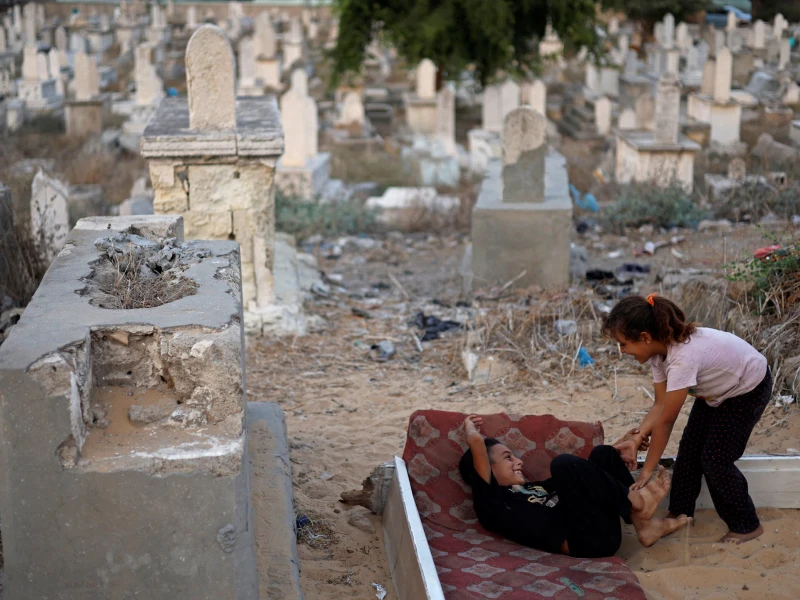The guns have gone silent in Gaza, but the wounds of two years of war are far from healed, the scent of gunpowder still hangs in the air as residents returning home find their once vibrant neighborhoods reduced to heaps of rubble.
According to a report by Al Jazeera, nearly 100,000 displaced Gazans have taken refuge in graveyards — the only open spaces left standing amid the ruins.
Families have pitched tents among the tombs, struggling to survive without adequate food, water or safety. For children, the trauma of war is now deepening into a grim reality — growing up surrounded by the silence of graves.
Rami Musleh, a father of 12, described his experience of raising children in a cemetery as “a new layer of pain after an immense human catastrophe.”
Our children are growing up with deep mental scars. The war left marks on their hearts, and now living among graves is making those wounds permanent,” he told Al Jazeera.
Residents say there is nothing left but ruins and shattered buildings across the city. With no roofs left to shelter under, many had no choice but to move into cemeteries.
Saba Muhammad, another resident who witnessed the war up close, lamented that “only the soil meant for the dead has become shelter for the living.”
Graveyards used to be sacred places. Now they host the living — the dead have become witnesses to the living’s wounds,” she said.
The UN estimates that more than 1.09 million people in Gaza have been displaced by two years of Israeli bombardment and siege. Many families have been forced to move over ten times in search of safety.
Israel’s relentless bombardment to seize northern Gaza forced thousands to flee south, but even the relatively safer southern areas are beyond reach for most — renting even a square meter of land is unaffordable. With no tents or space left, many ended up in cemeteries.
UN data also shows that Gaza is now buried under 61 million tonnes of debris. Clearing it will take years, leaving residents to scavenge daily through the wreckage for anything usable — a piece of food, a blanket, or material to reinforce their makeshift shelters.
Despite a ceasefire in place since October 10, Israel continues to block humanitarian aid from entering Gaza. Nearly every resident now relies entirely on such aid to survive.
Even in the face of overwhelming devastation, Gazans continue their struggle to live — among the graves, amid the ruins, and against all odds.


-1761220974.webp) Prev Post :
Prev Post :
